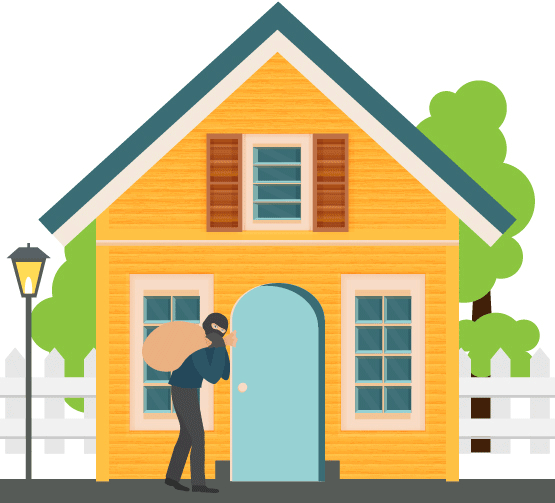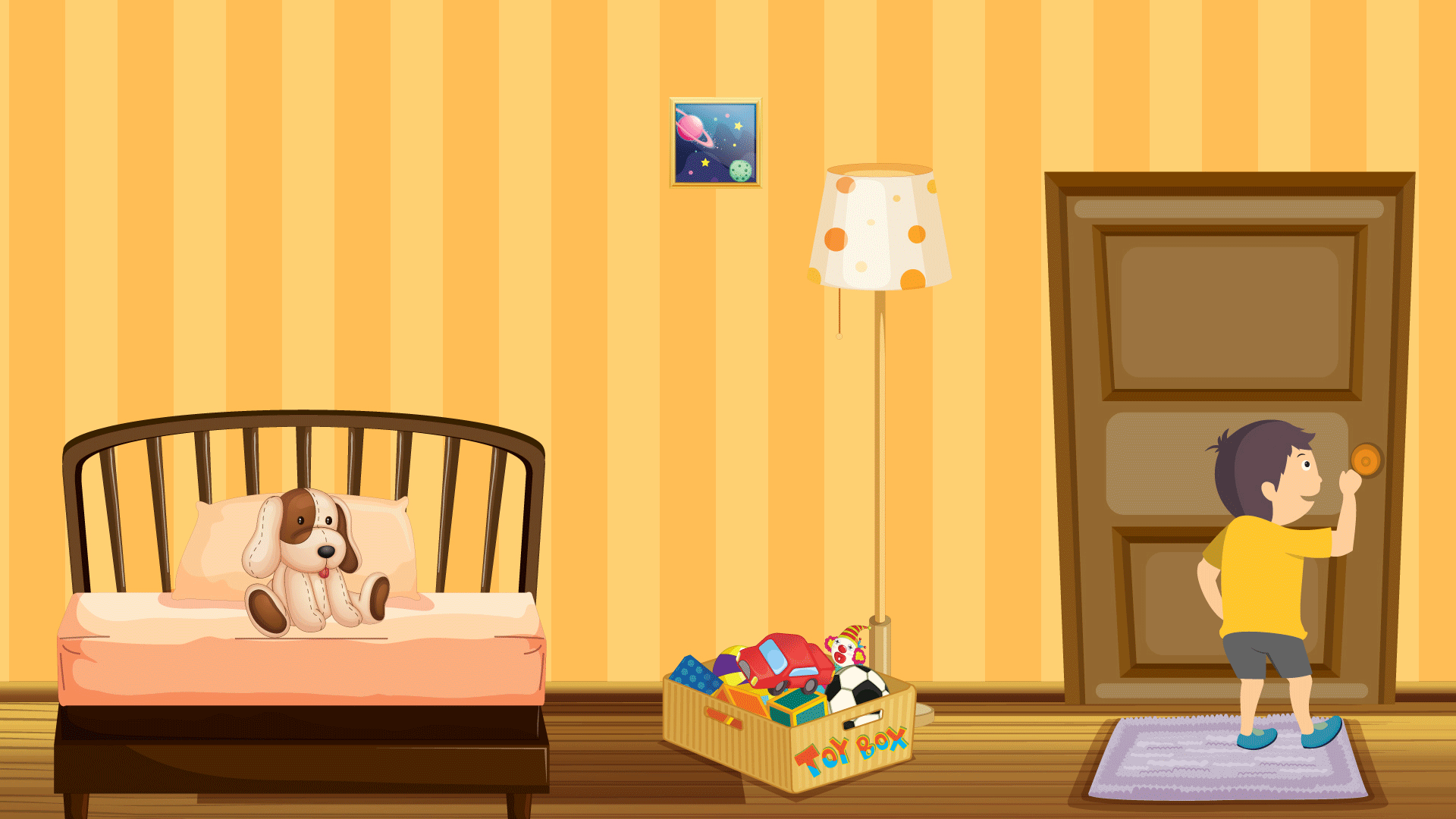
Around 10 million children in the US, some as young as eight years old, are left to look after themselves outside of school hours1. For these children, becoming a ‘latchkey’ kid is often an unavoidable consequence of both parents having to work full-time when no suitable childcare options are available. And for most kids, there will be times when their parents find it necessary to go out and leave them at home alone.
If you are considering leaving your child for the first time, you must take into account the strict age restrictions of certain states, and, in other areas of the country, take note of the advisory state guidelines. Just as importantly, you should be sure that your child is mature and capable enough to be left alone. No matter at what age you decide they are ready, in any state it is an offence to leave a child on their own if being alone puts them at risk in any way.
Whether you are still at work after your child has finished school, or you simply need to run to the store for provisions, leaving your child alone for the first time can be nerve-wracking for both of you. By following guidelines on when your child is ready to be left alone, preparing your child to cope independently, and implementing security systems in your home, you will give yourself peace of mind that they are safe and happy on their own.

Deciding on an Appropriate Age
Only three states currently have laws regarding a minimum age for leaving a child home alone2. Oregon state law requires children to be 10 before they can be left alone, while in Maryland the minimum age is only 8. This almost doubles to 14 in Illinois, where a parent may be found guilty of neglect if they leave a child age 13 or under alone.3
Other states have guidelines, with Kansas listing the minimum advisable age as low as 6 However, in at least 30 other states, there is no minimum age given for when a child can be left alone.
Of the states that do publish a guideline, all agree that a five-year-old is too young to leave on their own. Child experts concur that twelve is the most appropriate age at which to be left alone4, as long as it is only during the day and for a limited amount of time of no more than about three hours.
Actual age isn’t the only consideration a parent needs to take into account. Every child is different and, ultimately, it is up to you to use common sense to decide when your child is mature and capable enough to be left alone.

Keeping in Touch
Before leaving your child alone, they should know your contact details off by heart. They should also be aware of who to contact if they cannot get hold of you for some reason, or if there is an emergency. It’s a good idea to let a trusted neighbor, friend or relative know you will be leaving your kids alone so they can be available to call round to the house, if necessary.
It’s important that your kids also know how to call 911 in an emergency. Talk to them about the circumstances such as fire or serious illness that justify a call to the emergency services. Teach them how to stay calm when they’re on the phone and talk slowly and clearly in order to explain the problem. This is something you can practice with your kids at any time before you leave them alone for the first time.
To provide further support to parents, some local community organizations such as police departments or voluntary groups, also offer a telephone reassurance service where children left alone at home are contacted to check on their wellbeing. A call is then made to parents and other emergency numbers if there is no reply.


Preparing for Home Emergencies
As well as being able to answer the phone without letting on that they are alone, your kids should know how to switch the lights on and off and open and lock the windows and doors.
In addition to these basic skills, take your kids around the house to teach them some of the controls for water, gas and electricity. Show them where the stop valve is so that if there is a leak or a flood, they know how to shut off the water, and teach them how to deal with the electricity breaker box if a fuse is blown. In case of a power cut, leave out flashlights where they can easily find them. Run through the procedure for a small kitchen fire, provide a fire blanket or fire extinguisher and make sure they know how to use them safely and correctly. It is also useful if they know some basic first aid and can deal with a minor nose bleed or bandaging a small cut.
There may come a time when you have no choice but to leave your kids alone, suddenly at short notice. Before this becomes a necessity, practice leaving them for short periods so that they are not unsettled or frightened by your leaving them for the first time,

Sounding the Alarm
However capable your kids are, installing an alarm system will give you extra peace of mind and ensure that they are secure in the home. With an integrated smart system, you will get a notification on your phone if any alarms are sounded, but your child should also know how to work the system, and what to do if the alarm is accidentally set off.
Make sure you also have smoke and carbon monoxide alarms fitted throughout the house. Obviously, these should always be in good working order and tested regularly, but a good time to double check them is when you know you are going to be leaving your kids alone. Of course, having a working alarm isn’t enough unless your child knows what to do if it goes off. For example, if the carbon monoxide alarm is triggered, windows must be opened immediately and your child should know to turn off any fuel burning appliances but to avoid touching the light switches.

Other Smart Technology
It’s important to train your child not to answer the door to a stranger, and, if you’re not expecting anyone to call while you are out, it is advisable to tell your child to completely ignore anyone ringing the front door bell. The benefit of a smart doorbell with a camera means that you can effectively answer the door on behalf of your kids via an app on your phone. You can safely turn strangers away, whilst letting them think that an adult is home but too busy to come to the door.
Some integrated security systems also have an outdoor surveillance camera which means you can see if there is a potential intruder approaching the outside of your home even if they don’t ring the bell. Cameras in the house mean you can monitor inside when you are away but, as a bonus, these also give you chance to check in and talk to your kids when they get in from school.
With an integrated security system, security cameras, door locks and motion sensors can be connected and controlled from your phone. If you have agreed with your child that they are not to leave the home while you are out, you will receive an alert if the front door or a window is breached.
You can also change light settings, monitor the heating thermostat and, with a smart-water leak detector, get alerts if there is an escape of water. Ideally, your child will know how to operate the basic systems in your home but, this way, you will be notified if the temperature drops because of a problem with the boiler or if there is a water leak somewhere in the house of which your child may be unaware.

Keep Time Alone to a Minimum
For a mature, responsible child, being left unsupervised can be beneficial. The first time alone is an important milestone and can make a child feel trusted and encourage self-reliance and independence.
However, if you do have to leave your children, try to minimize the length of time for which they are alone. Don’t stay out longer than absolutely necessary or, as an alternative to leaving them alone, investigate other childcare options for them. Perhaps they can stay late at school to participate in extra-curricular activities, or maybe a friend or relative could call in to check on them while you are away.
If children are left alone for long periods they can get lonely and bored. In extreme cases, this can lead to kids getting into trouble with the law4 but, at the very least, it could result in your child breaking the rules that you’ve all agreed on as a family.
Agreeing Household Rules
As well as basic safety guidelines, you will need to discuss other limitations and allowances, such as whether your kids are allowed to invite friends around or if they are permitted to leave the house when you’re not there. You may want them to undertake some simple chores such as emptying the dishwasher or hanging out laundry, or perhaps you would rather they concentrate on completing their homework after school.
You’ll also need to decide if your child will be responsible for making themselves a meal while you are out, and if so, show them how to safely use the oven or microwave. If you will be back to prepare dinner, or you would prefer to keep the oven off limits for safety reasons, leave healthy snacks for your kids to eat instead.

Parental Controls
It can be hard enough to limit screen time and supervise internet and television content when you are at home with your children. When they are alone, parental controls, content filtering software and internet blockers can all be put in place to prevent access to a particular computer or specific websites5. You can control the time of day when the internet is used and, if you have more than one child, set different age appropriate profiles so that each child can access content that it is suitable for them. You can also set controls on your TV to block adult-rated programs or other specific shows, and limit viewing times.
As well as using electronic controls, have a chat with your kids about suitable content on the internet and television and finding the right balance between screen time and other activities. When you are home, take an interest in the games they are playing or shows that they are watching but, at the same time, explain to them the benefits of taking time out so that they act responsibly and take control of limiting their own screen time when you’re not there.


Conclusion
As well as adhering to state laws or heeding state guidelines, when it comes to deciding when to leave your child alone at home for the first time, you should follow your own instincts. Trust your own judgment as to when your child is mature enough, not only to cope with an emergency should it arise, but generally feel comfortable and relaxed on their own.
If you’re not certain your child is ready, or if they are unsure or feel frightened about being on their own, be patient and wait until they are older. Remember, however urgent a meeting at work or vital a trip to the store, you must never leave your child if you have any doubt at all about their safety.
Before you leave them, take time to prepare them for how to cope with an emergency in the home and make sure they are happy with running the basic functions of the house. When you and your child are both happy with them being left alone, stay in control by setting clear guidelines for your child to follow and make the most of technology to monitor the safety of your child, and the security and comfort of your home.








